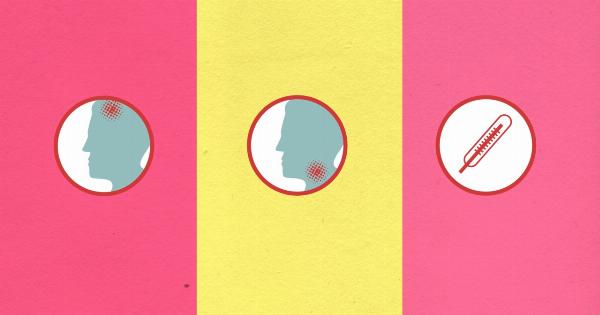Sinusitis, also known as a sinus infection, is a condition in which the sinuses become inflamed and swollen. The sinuses are hollow spaces in the bones around the nose and eyes that help to filter the air we breathe.
When the sinuses become infected or blocked, it can lead to a range of symptoms that can be uncomfortable and sometimes even painful. In this article, we will discuss the symptoms, causes, and treatment options for sinusitis.
What are the Symptoms of Sinusitis?
The symptoms of sinusitis can vary depending on the type and severity of the infection. The most common symptoms include:.
- Nasal congestion
- Headache
- Facial pain or pressure
- Postnasal drip
- Cough
- Fever
- Fatigue
- Bad breath
If you experience any of these symptoms, it is important to see a doctor as soon as possible for an accurate diagnosis.
What Causes Sinusitis?
Sinusitis can be caused by a variety of factors, including:.
- A viral infection
- A bacterial infection
- Allergies
- Nasal polyps
- A deviated septum
- Weak immune system
In some cases, sinusitis may be caused by a combination of factors. For example, an allergy to pollen may cause inflammation in the sinuses, which may then become infected with bacteria.
How Is Sinusitis Treated?
The treatment for sinusitis will depend on the type and severity of the infection. Some common treatment options include:.
- Antibiotics: If the sinusitis is caused by a bacterial infection, antibiotics may be prescribed to help clear the infection.
- Decongestants: These medications can help to reduce nasal congestion, making it easier to breathe.
- Nasal corticosteroids: These medications can help to reduce inflammation in the sinuses, which can help to relieve symptoms like facial pain and pressure.
- Saline nasal spray: This can help to relieve nasal congestion and flush out the sinuses.
- Sinus surgery: In some cases, sinusitis may require surgery to clear the sinuses and improve drainage.
Your doctor will be able to recommend the best treatment option for your individual case.
How Can Sinusitis Be Prevented?
There are several things you can do to help prevent sinusitis, including:.
- Washing your hands regularly to prevent the spread of germs
- Avoiding close contact with people who have colds or flu
- Using a humidifier to keep the air in your home moist
- Avoiding irritants like cigarette smoke and air pollution
- Managing allergies with medication or allergy shots
If you are prone to sinus infections, it may also be helpful to speak with your doctor about additional steps you can take to prevent future infections.
Conclusion
Sinusitis can be a painful and uncomfortable condition, but with the right treatment, it can usually be resolved. If you are experiencing symptoms of sinusitis, be sure to see a doctor for an accurate diagnosis and treatment plan.
By taking steps to prevent sinusitis, you can reduce your risk of developing this condition in the future.




























